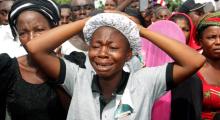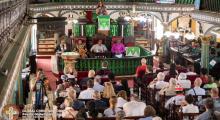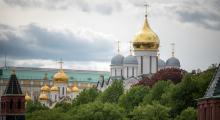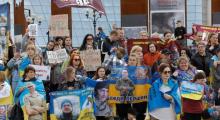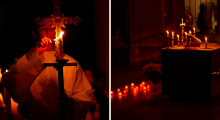Issued by the Catholic Center for Studies and Media - Jordan. Editor-in-chief Fr. Rif'at Bader - موقع أبونا abouna.org
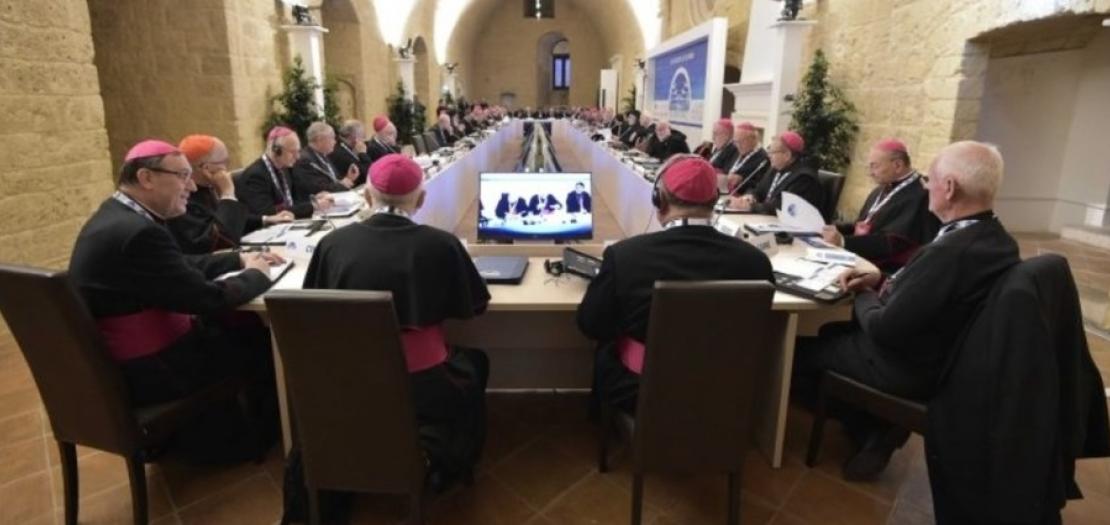
Debates on Thursday, February 20, at the “Mediterranean, frontier of peace” forum in which 58 bishops from 20 countries and three continents are participating in focused on the theme of the transmission of the faith to the young generations, as SIR reported.
“We must and intend to work together more systematically”, Archbishop of Bari-Bitonto Francesco Cacucci said at a press conference presenting the advances of the February 20 debates, which included a pledge among the Mediterranean Churches to twin dioceses and exchange missionaries, among other measures.
“This would also help old Europe to live as a Church of the people”, Cacucci added.
Decrying those “economic interests” which distort Europe’s view of the countries beyond its southern and eastern shores, the Bari archbishop warned that “the Gospel is no reason for discrimination, for disrespecting these countries and the Christian communities living in these countries”.
Particularly in the Middle East, where persecuted Christians are living a “conspiracy of silence” that compounds their suffering, Cacucci denounced.
Other questions on the table Thursday included the demographic decline in southern Italy – where “35,000 people leave every year” just from Sicily alone, according to the Bishop of Acireale, Antonino Raspanti – to the “emergence of worrying theocratic claims” in some areas of the Mediterranean, as theologian Pina De Simone warned.
Whether in the “Middle Eastern or African countries experiencing a growing Islamization of the State and the destructive force of terrorist organisations” – or “in Western countries afflicted by a climate of disorientation that began with the crisis of the economic system and democratic institutions, and that respond to migratory flows by closing borders, ports and crossings” – fundamentalism “is always a defeat of the faith and a denial of the inherent humaneness of experiencing God”, De Simone denounced.
For his part, Archbishop of Barcelona Cardinal Juan José Omella admitted that “we are experiencing in Europe a ‘globalisation of indifference’ and a change of era that does not allow us to glimpse solutions on the horizon and the way forward”.
“In Europe, people look at the Church with discontent and disappointment”, especially because of the plague of clergy sex abuse and the belief that the European Churches have a lot of money, Omella acknowledged.
For that reason, the Barcelona cardinal insisted that the faith be transmitted first and foremost today by witness, not by words, and that Christian communities should be marked first of all by communion, fraternity, love and joy, since that is what attracts the new generations most of all.
On Friday, the bishops at the Bari synod turned their gaze to geopolitical challenges in the Mediterranean, such as wars, migrations and economic crises.
“The Mediterranean is once again a crucial quadrant for the dynamics of the global world. Talking about the Mediterranean means facing a multiple universe”, Adriano Roccucci, professor of modern history at the Roma Tre University, told the assembled prelates.
“There is a particular responsibility of Christians in these difficult times”, Roccucci told the bishops.
“It is about doing the possible and the impossible to facilitate the end of wars, to foster reconciliation processes… [and] to combat hate and prejudice we need concrete and tenacious paths of dialogue and friendship”, the academic insisted.
Activities at the Bari synod will continue Saturday, with the organisation of an assembly for general conclusions that will be condensed into a final synod document, followed by a public event in Bari’s Petruzzelli Theatre entitled “In the Same Boat”.
On Sunday, February 23, Pope Francis will travel to Bari to address the meeting, to celebrate a closing open-air Mass and to receive the final document of the bishops.


